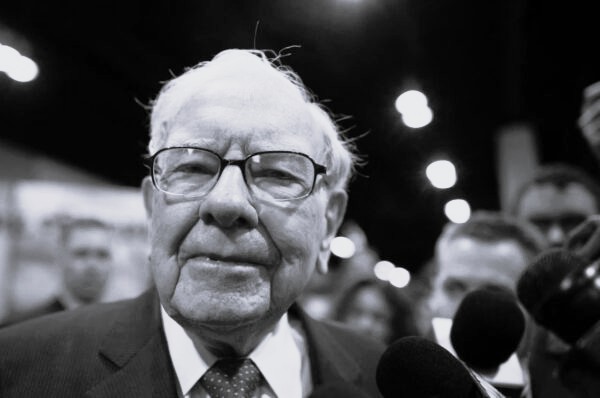Even Buffett is struggling to outperform this bull market. Berkshire’s massive cash stake is key.
Referenced Symbols
-
BRK.B
-0.19% -
BRK.A
-0.33% -
SPX
-0.01%
There’s a good chance that Berkshire Hathaway’s stock will lag the S&P 500 in the coming years.
This is a matter of simple probabilities, and not a criticism of Berkshire Hathaway
BRK.B
BRK.A
Chairman and Chief Executive Warren Buffett or his designated successors. Given the huge amount of statistical noise in the market, luck plays a considerable role in performance, not only over the short term but in the intermediate term as well. And since bad luck can happen just as readily as good luck, lagging the market can’t be ruled out — even for someone with as phenomenal a track record as Buffett.
Reviewing Buffett’s track record in light of these probabilities is a helpful prelude to the anticipated release of Berkshire Hathaway’s annual report, which is expected later this month. Berkshire Hathaway hasn’t indicated the exact day on which it will be released, and a phone message left with the company’s media-affairs office seeking clarity was not immediately answered.
For 2024, Berkshire Hathaway’s stock beat the market, though barely: Its total return was 25.5% for the calendar year, versus 25.0% for the S&P 500
SPX
. As you can see from the accompanying chart, the stock is slightly behind the S&P 500 for trailing 10- and 15-year performance, but slightly ahead over the trailing 20 and 30 years. Over each of these periods, the difference between the company’s performance and the stock market is small.

To understand why the probabilities don’t give much confidence in Berkshire Hathaway’s future market-beating abilities, consider how many years it would take to convince a rigorous statistician that the company’s past performance was due to genuine ability rather than luck. For illustration purposes, I’ll extrapolate into the future the company’s performance over the past 30 years — the second half of its 60-year period of being managed by Buffett.
In the first three decades of Buffett’s management, the company was much smaller and able to invest in undervalued small-cap companies. Today, Berkshire Hathaway is so huge that, as Buffett has said in past annual meetings, it is only interested in investing in large companies, since only large firms can make a meaningful impact on Berkshire Hathaway’s bottom line.
Given the company’s annualized margin ahead of the market (alpha) over the past 30 years (1.5%) and the standard deviation of the company’s annual returns over this period (39.2%), it would take more than 100 years of such performance to conclude at the 95% confidence level that the company’s alpha wasn’t attributable to sheer luck.
In other words, there is no practical way for any of us to have statistical confidence that Berkshire Hathaway’s market-beating performance over the last 30 years was due to more than luck. That’s another way of saying that the best guess is that the company’s future performance will closely match that of the overall market.
(Note that a statistician would have reached the opposite conclusion after the first 30 years of Buffett’s management of Berkshire Hathaway. Its alpha then was far larger, and as a result those years were more than enough to conclude at the 95% confidence level that the company’s performance was due to more than luck. But, as mentioned above, those early years are of limited relevance to forecasting Berkshire Hathaway’s future performance.)
Cash on the line
This statistical review of Berkshire Hathaway’s performance provides the necessary context to consider any of the topics that Buffett may discuss in the upcoming annual report. We may want to put his opinions in a different light if our best guess is that the company’s future performance will closely match that of the market.
This is particularly the case for what will no doubt be one of the most closely watched data points in the annual report: the size of Berkshire Hathaway’s cash position, which at the end of 2024’s third quarter already stood at a huge $325 billion. Will the company’s cash position be even greater at the end of the year, and does that mean Buffett is bearish on the stock market — and how much should we care in any case?
Let me repeat that this analysis is not intended as a criticism of Buffett’s phenomenal track record. For virtually every other manager, a statistician’s conclusion would be even more sobering. Buffett has defied the law of gravity far longer than virtually any of them. But beating the market becomes harder and harder as Berkshire Hathaway grows larger and larger, and eventually even it succumbs to that law.
Mark Hulbert is a regular contributor to MarketWatch. His Hulbert Ratings tracks investment newsletters that pay a flat fee to be audited. He can be reached at mark@hulbertratings.com.
More: Berkshire buys more Occidental stock. How much it holds now.
Plus: Warren Buffett bought booze, pizza and pool stocks, ditched Ulta Beauty in Q4



